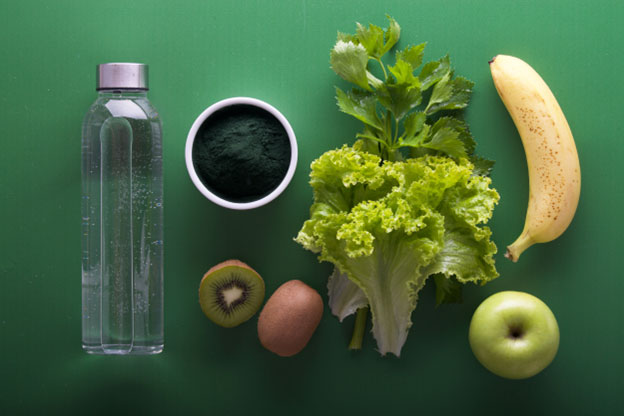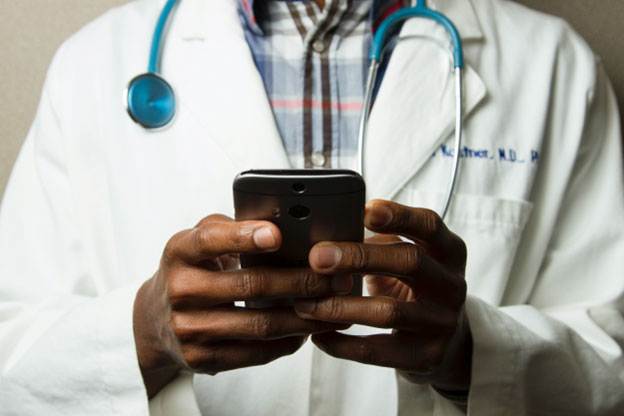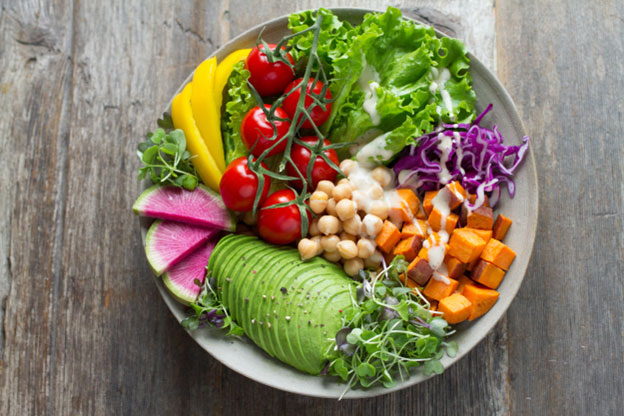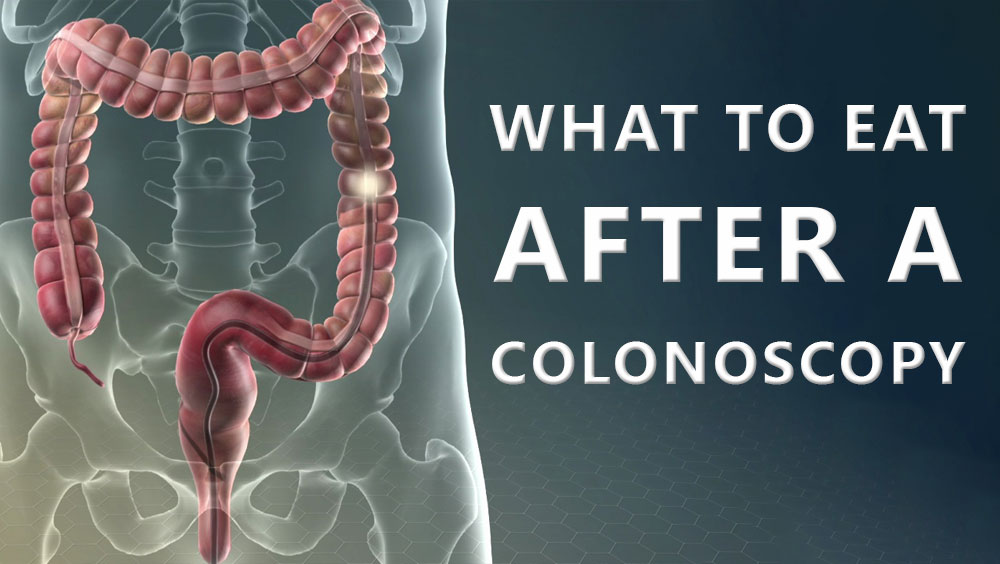Are you wondering what to eat after your colonoscopy? It can be difficult to determine the best type of food to eat, as you may have certain dietary restrictions or restrictions placed on you by your doctor. In this article, we will discuss some of the best foods to eat after a colonoscopy in order to help you make an informed decision and get back on track with your normal diet.

Post-Colonoscopy Dietary Guidelines
After undergoing a colonoscopy procedure, it is important to follow certain dietary guidelines to ensure proper healing and minimize any discomfort or side effects. While each individual's specific dietary instructions may vary based on their doctor's recommendations, here are some general guidelines to follow after a colonoscopy.
Introduction to Post-Colonoscopy Diet
The purpose of a post-colonoscopy diet is to provide your body with gentle and easily digestible foods that will not irritate the digestive system. This diet aims to aid in the recovery process and ensure a smooth transition back to your regular diet.
The initial hours following the procedure require strict adherence to a liquid diet. This helps give your digestive system time to recover and gradually return to normal functioning. Clear liquids such as water, herbal teas, and clear broths should be prioritized. Sports drinks can also be included to replenish electrolytes; however, it is best to avoid carbonated beverages as they may cause gas and bloating.
As your recovery progresses, you can gradually introduce soft and low-fiber foods into your diet. Cooked vegetables, mashed potatoes, well-cooked rice (such as brown or white rice), and lean proteins like chicken or fish are good options. It is advisable to include dairy products such as yogurt and cottage cheese, opting for low-fat or non-fat varieties.
Recommended Foods
Here are some recommended foods to include in your post-colonoscopy diet:
1. Clear Liquids: In the initial hours after the procedure, stick to clear liquids such as water, herbal teas, and clear broths. These liquids help give your digestive system time to recover and gradually return to normal functioning.
2. Soft and Cooked Vegetables: As your recovery progresses, you can gradually introduce soft and cooked vegetables into your diet. Steamed or boiled vegetables are good options.
3. Lean Proteins: Include lean proteins like poultry or fish in your diet. These provide essential nutrients while being easy to digest. Opt for grilled, baked, or poached preparations.
4. Soft Fruits and Cooked Grains: Choose soft fruits like bananas and cooked grains such as well-cooked rice (such as brown or white rice) as they are gentle on the digestive system.
5. Low-Fiber Foods: Avoid high-fiber foods temporarily, as they can be harder to digest. Instead, opt for low-fiber options that are easier on the digestive system.

Foods to Avoid
After a colonoscopy, it is important to avoid certain foods to prevent digestive discomfort or irritation. Here are some foods to avoid during your post-colonoscopy diet:
1. Spicy or Greasy Foods: These can be harsh on your digestive system and may cause abdominal pain or discomfort. It's best to avoid spicy curries, fried or fatty foods, or greasy snacks.
2. Raw Vegetables and Fruits with Skins or Seeds: Raw vegetables and fruits that have skins or seeds can be harder to digest. Avoid salads with raw vegetables, and choose peeled and cooked vegetables instead. Also, opt for softer fruits like bananas or canned fruits without seeds.
3. High-Fiber Foods: While fiber is essential for regular bowel movements, it can be harder to digest immediately after a colonoscopy. Avoid whole grains, beans, and legumes until your digestive system has had time to recover.
4. Carbonated Beverages and Caffeine: Carbonated drinks and caffeinated beverages like coffee or energy drinks can irritate the digestive system and cause bloating or discomfort. Opt for water, herbal teas, or decaffeinated beverages instead.
Tips for a Smooth Recovery
Remember, a colonoscopy is a vital screening tool and a proactive step toward maintaining your colon health. By following these tips for a smooth recovery, you can ensure that your digestive system recovers effectively and you stay on top of your overall health.
Hydration and Fluid Intake
Hydration is key during the recovery period after a colonoscopy. It's important to drink plenty of fluids to stay hydrated and aid in the healing process. Here are some tips for incorporating water, herbal tea, and clear liquids into your diet:
1. Water: Water is the best choice for staying hydrated. Aim to drink at least 8 cups of water per day. Take small sips throughout the day to avoid feeling overwhelmed and to ensure proper hydration.
2. Herbal Tea: Herbal teas, such as chamomile or peppermint, can provide hydration and soothing benefits to your digestive system. Avoid adding sugar or caffeine to your tea, as these can irritate your colon.

3. Clear Liquids: Clear liquids like broths, fruit juices without pulp, and sports drinks can also help with hydration. These liquids are easy to digest and provide essential electrolytes. Be sure to choose options that do not have added sugars or artificial ingredients.
4. Avoid Carbonated and Caffeinated Beverages: Carbonated and caffeinated beverages can irritate your digestive system and may cause discomfort. It is best to avoid these types of drinks during your recovery period.
Gradual Transition to Solid Foods
Start with easily digestible options such as bland foods and gradually incorporate more variety into your diet. Here are some tips for a gradual transition:
1. Start with Soft Foods: Begin with soft foods like cooked vegetables, mashed potatoes, and lean protein such as boiled chicken or fish. These options are gentle on the digestive system and provide essential nutrients.
2. Include High-Fiber Foods: As you progress, gradually try eating high-fiber foods like whole grains, brown rice, and whole-wheat bread. Fiber helps regulate bowel movements and supports colon health.
3. Opt for Lean Protein: Include lean protein sources like skinless poultry, fish, or tofu. These options are easier to digest compared to fatty or fried foods.
4. Avoid Spicy and Greasy Foods: Spicy foods or greasy dishes can cause abdominal discomfort post-colonoscopy. It's best to avoid these until your digestive system is fully recovered.
5. Eat Smaller, Frequent Meals: Instead of consuming large meals, opt for smaller, frequent meals throughout the day. This helps prevent overloading your digestive system and allows for better nutrient absorption.
Managing Digestive Discomfort
While a colonoscopy is an important procedure for maintaining colon health and preventing conditions such as colon cancer, it can leave you feeling uncomfortable afterward. Here are some tips for managing common post-colonoscopy symptoms like bloating, gas, and constipation.
1. Embrace Gentle Movement: Engaging in light exercise, such as walking or gentle stretches, can help stimulate your digestive system and alleviate discomfort. However, avoid any strenuous activities that may strain your abdomen.
2. Consider Probiotics: Probiotics are beneficial bacteria that can promote a healthy gut. They may aid in restoring the natural balance of your gut microbiota, which can be disrupted by the bowel prep and the procedure itself. Consult with your doctor about incorporating probiotics into your post-colonoscopy diet.
3. Over-the-Counter Remedies: If you experience ongoing digestive discomfort, over-the-counter medications such as simethicone can help relieve gas and bloating. It's always a good idea to consult with your healthcare provider before starting any new medications.
4. Stay Hydrated: Adequate hydration is essential for proper digestion and preventing constipation. Drink plenty of fluids, such as water or clear fruit juice, following your colonoscopy. However, avoid carbonated and caffeinated beverages, as they may contribute to bloating and gas.
5. Gradually Resume Your Normal Diet: After your digestive system has had time to recover, slowly reintroduce your regular diet. Start with easily digestible foods like cooked vegetables, lean proteins, and whole grains. Be mindful of any foods that may trigger discomfort, such as spicy or greasy dishes, and avoid them until your digestive system is fully recovered.
By following these strategies, you can help manage digestive discomfort after a colonoscopy and get back to your normal activities as soon as possible. Remember to consult with your doctor if you have persistent or severe symptoms.

Conclusion
In conclusion, following post-colonoscopy dietary guidelines is crucial for a smooth and comfortable recovery. While the procedure itself may cause discomfort, adopting a thoughtful approach to your diet can help alleviate symptoms.
Listening to your body is key during this time. Gradually reintroduce foods into your diet, starting with easily digestible options like cooked vegetables, lean proteins, and whole grains. Pay attention to any signs of discomfort and avoid spicy or greasy dishes until your digestive system is fully recovered.
Hydration is also essential for proper digestion and preventing constipation. Be sure to drink plenty of fluids, such as water or clear fruit juice, throughout the day. However, avoid carbonated and caffeinated beverages, as they can contribute to bloating and gas.
Overall, prioritize gentle nutrition and be patient with your body's healing process. With the right dietary choices and adequate hydration, you can support your colon health and promote a smooth recovery after your colonoscopy.
Frequently Asked Questions:
How long should I follow the post-colonoscopy diet?
The duration of the post-colonoscopy diet may vary depending on individual factors and the specific recommendations of your healthcare provider. In general, it is advisable to follow a modified diet for a day or two following the procedure to allow your digestive system to recover properly.
Can I eat dairy products after a colonoscopy?
While it is generally safe to consume dairy products after a colonoscopy, it is important to listen to your body and introduce them gradually. Some individuals may experience temporary lactose intolerance or digestive issues after the procedure. Opt for low-fat dairy products initially and monitor your body's response.
Are there any specific foods that help with post-colonoscopy recovery?
Foods that are easily digestible and gentle on the gastrointestinal system are recommended for post-colonoscopy recovery. These may include cooked vegetables, lean proteins such as chicken or fish, whole grains like brown rice or whole wheat bread, and soft fruits. Avoid spicy, greasy, or high-fiber foods temporarily to prevent any discomfort or irritation.
When can I resume my regular diet after a colonoscopy?
The timing of resuming your regular diet will depend on several factors, including the results of your colonoscopy and any individual dietary restrictions or recommendations from your healthcare provider. It is important to follow their guidance and gradually reintroduce foods into your diet as your digestive system recovers.
What should I do if I experience persistent digestive issues after the procedure?
If you experience persistent digestive issues such as abdominal pain, bloating, or changes in bowel movements after a colonoscopy, it is important to consult with your healthcare provider. They can evaluate your symptoms, provide appropriate guidance, and address any concerns or complications that may have occurred during the procedure.
Remember, these are general recommendations, and it is crucial to follow your doctor's instructions based on your specific needs and the results of your colonoscopy.


